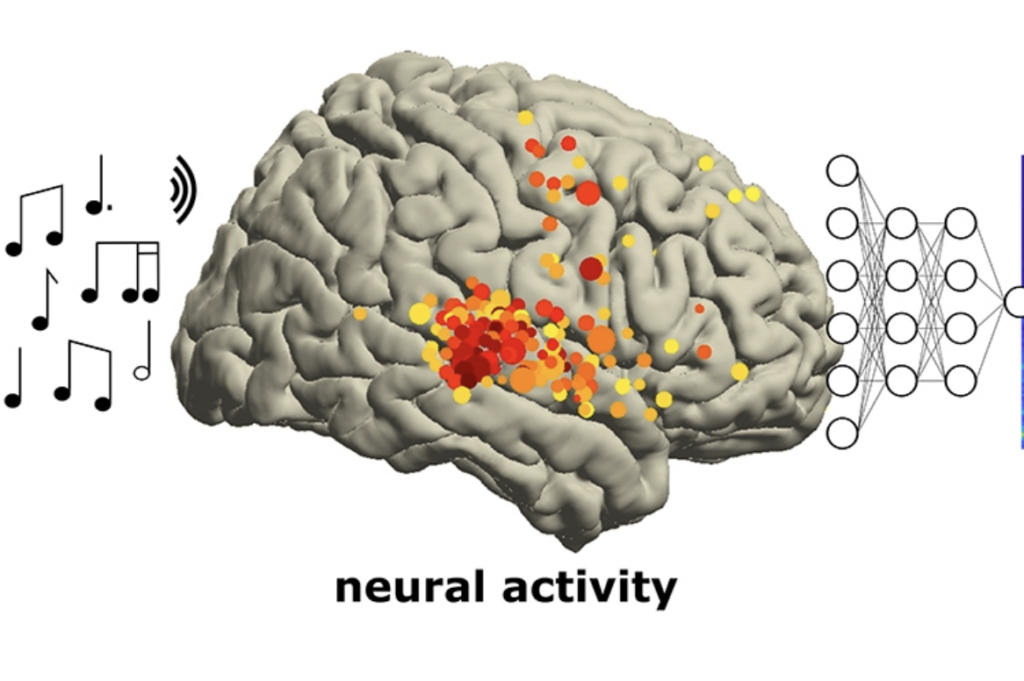Anyone who’s worked in an operating room knows that many surgeons like to put on music while they do their job, and that their working soundtracks often include surprising artists. It hardly requires a leap of imagination to assume that there are more than a few scalpel-wielding Pink Floyd fans out there — scalpel-wielding Pink Floyd fans who will surely feel their musical taste vindicated by a study that involved playing “Another Brick in the Wall (Part 1)” to patients undergoing epilepsy-related neurosurgery. Afterward, with help from artificial intelligence, the researchers were able to reconstruct the song from those patients’ recorded brainwaves.
That this turns out to be possible offers “a first step toward creating more expressive devices to assist people who can’t speak,” writes the New York Times‘ Hana Kiros. “Over the past few years, scientists have made major breakthroughs in extracting words from the electrical signals produced by the brains of people with muscle paralysis when they attempt to speak. But a significant amount of the information conveyed through speech comes from what linguists call ‘prosodic’ elements, like tone.”
It is the musical elements of speech, one might say, that have so far eluded reproduction by existing brain-machine interfaces, whose sentences “have a robotic quality akin to how the late Stephen Hawking sounded when he used a speech-generating device,” as Robert Sanders writes in Berkeley News.
You can hear a clip of “Another Brick in the Wall (Part 1)” as generated from the researchers’ AI work with brainwave data in the Euronews video above. Indistinct though it may sound, the song will come through recognizably even to the ears of casual Pink Floyd fans (irked though they’ll be by the video’s accompanying it with the cover image from The Dark Side of the Moon). They may also feel the urge to continue listening to the rest of The Wall, especially “Another Brick in the Wall (Part 2),” with its school-choir delivered declaration that we don’t need no mind control. But as for just-dawning technologies that allow us to control things with our minds — well, that wouldn’t be so bad, would it?
Related content:
Neurosymphony: A High-Resolution Look into the Brain, Set to the Music of Brain Waves
Music in the Brain: Scientists Finally Reveal the Parts of Our Brain That Are Dedicated to Music
Hear a Neuroscientist-Curated 712-Track Playlist of Music that Causes Frisson, or Musical Chills
The Neuroscience of Bass: New Study Explains Why Bass Instruments Are Fundamental to Music
How Pink Floyd Built The Wall: The Album, Tour & Film
Based in Seoul, Colin Marshall writes and broadcasts on cities, language, and culture. His projects include the Substack newsletter Books on Cities, the book The Stateless City: a Walk through 21st-Century Los Angeles and the video series The City in Cinema. Follow him on Twitter at @colinmarshall or on Facebook.
